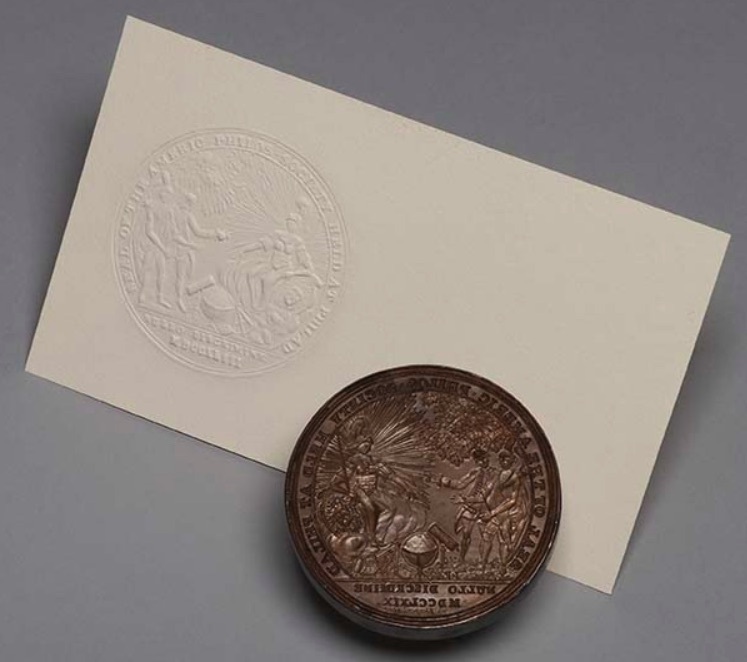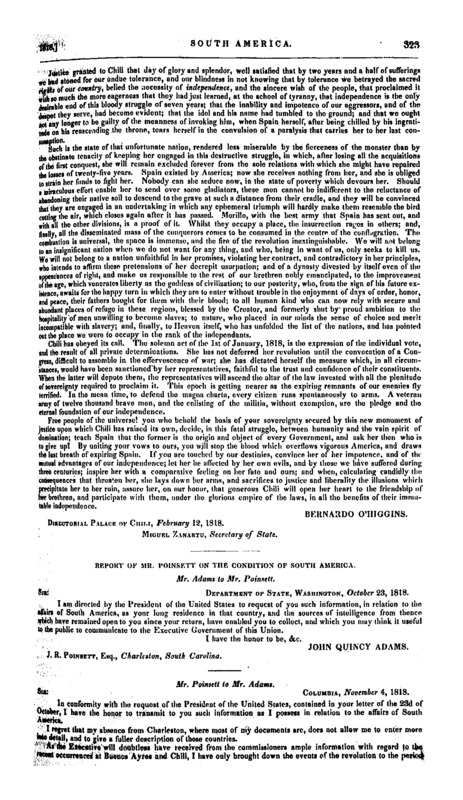Learned Societies
The American Philosophical Society in Philadelphia was the oldest learned society in the United States. It was the most prestigious and prolific learned society in the early republic. The American Academy of Arts and Sciences, the second oldest learned society in the country based in Boston had only published five volumes of work from its Memoirs of the American Academy of Arts and Sciences. This included a significant gap of twenty-four years between the fourth publication in 1809 to the fifth in 1833. The APS’s publication Transactions of the American Philosophical Society published ten volumes by 1834 and two additional volumes by the end of the decade. In fact, the main scientific competition that emerged for the APS came from a young organization founded in Philadelphia called the Academy of Natural Sciences which was founded in 1812. That institution gained prominence after securing patronage to build a natural history library and the funds to publish its own journal in 1817.[1] By 1830 the ANS had published six volumes demonstrating its scientific prowess.[2]
A major feature of the Transactions of the American Philosophical Society listed books, natural curiosities, scientific apparatuses, and artifacts from antiquity. These gifts to the societies included the names of the donors, the dates received, and the name of the gift. This section emphasized the breadth of the network of members and their collaborators across the world. Starting in the 1818 issue the society separated general donations to the society from the “Donations for the Cabinet.”[3] The acquisition of specimens for the Society to utilize in its scientific inquiries was critical for the diffusing of new knowledge and to maintain the status as a leading scholarly institution. A critical means for acquiring new resources came from explorers as well as merchants and diplomats.[4] This strategy was built into the foundation and purpose of the society and typically the members of these groups served in critical diplomatic positions.
An increasing number of learned societies engaged in the practice of collecting knowledge by sponsoring expeditions, relying on members to send collections to their repositories and participating in exchanges with other learned societies. Increasingly these societies used their members relationships with the government to promote botanical bioprospecting. For example the APS relied on their members to help build their collections. Joel R. Poinsett was selected by James Madison to serve as a commercial agent to the revolutionary governments in South America. He spent a significant amount of his time in Chile and in Buenos Aires. His official role was very similar to that known as consul in official recognized countries. His commission was the agent for seamen and commerce. The stated goal of the mission was designed to communicate the mutual advantages of commerce and to promote a legal framework in which to promote those exchanges.[5]
Poinsett’s report submitted to Secretary of State John Quincy Adams outlined a history of abuses heaped upon colonial inhabitants by the Spanish church, inefficient and greedy bureaucracy and exploitation of the people in South America. He also outlined the riches in commodities and resources available, He emphasized the riches extracted from the mines and the significant agricultural products from the various regions in South America. Poinsett expertly collected demographic information, geographic descriptions and the value of the productions in the regions.[6]
Notes
[1] Simon Baatz, “Philadelphia Patronage: The Institutional Structure of Natural History in the New Republic, 1800-1833,” Journal of the Early Republic 8, no. 2 (Summer 1988): 111–38, https://doi.org/10.2307/3123808; Patricia Tyson Stroud, “The Founding of the Academy of Natural Sciences of Philadelphia in 1812 and Its ‘Journal’ in 1817,” Archives of Natural History 22, no. 2 (October 1995): 221–33, https://doi.org/10.3366/anh.1995.22.2.221.
[2] Academy of Natural Sciences of Philadelphia. and Academy of Natural Sciences of Philadelphia, Journal of the Academy of Natural Sciences of Philadelphia. (Philadelphia: Academy of Natural Sciences of Philadelphia, 1817-1830), https://www.biodiversitylibrary.org/bibliography/34362.
[3] “Donations for the Cabinet,” Transactions of the American Philosophical Society 1 (1818): 452–53.
[4] The literature on exploration expeditions and the connections between government and learned societies is vast. See examples A. Hunter Dupree, “The National Pattern of American Learned Societies, 1769-1863,” in The Pursuit of Knowledge in the Early American Republic: American Scientific and Learned Societies from Colonial Times to the Civil War, ed. Alexandra Oleson and Sanborn Brown (Baltimore: Johns Hopkins University Press, 1976), 21–32; John C. Greene, “Science, Learning and Utility: Patterns of Organization in the Early American Republic.,” in The Pursuit of Knowledge in the Early American Republic: American Scientific and Learned Societies from Colonial Times to the Civil War (Baltimore: Johns Hopkins University Press, 1976), xvi – xxv; William Ragan Stanton, American Philosophical Society, and Library, American Scientific Exploration, 1803-1860: Manuscripts in Four Philadelphia Libraries, (Philadelphia: American Philosophical Society Library, 1991). (also see web version accessed November 21, 2015, https://amphilsoc.org/guides/stanton/); James P. Ronda, Beyond Lewis & Clark: The Army Explores the West (Tacoma: Washington State Historical Society, 2003); James P. Ronda, “Dreams and Discoveries: Exploring the American West, 1760-1815,” William & Mary Quarterly 46, no. 1 (January 1989): 145–62; Marco Sioli, “Breaking into the Trans-Mississippian Frontiers: Thomas Jefferson’s Expeditions to the West,” European Contributions to American Studies 58 (August 2004): 69–87; Cameron B. Strang, Frontiers of Science: Imperialism and Natural Knowledge in the Gulf South Borderlands, 1500-1850 (Williamsburg, Virginia: Omohundro Institute of Early American History and Culture, 2018), 177-192; Christine Coalwell McDonald and Robert M. S. McDonald, “West from West Point: Thomas Jefferson’s Military Academy and the ‘Empire of Liberty,’” in Light & Liberty: Thomas Jefferson and the Power of Knowledge, ed. Robert M. S. McDonald, Jeffersonian America (Charlottesville, VA: University of Virginia Press, 2012), 116–36.
[5] J. Fred Rippy, Joel R. Poinsett, Versatile American (New York: Greenwood Press, 1935). 35-36
[6] Joel R. Poinsett, “Report of Mr. Poinsett on the Condition of South America,” American State Papers: Foreign Relations 4:305, 323-348.

